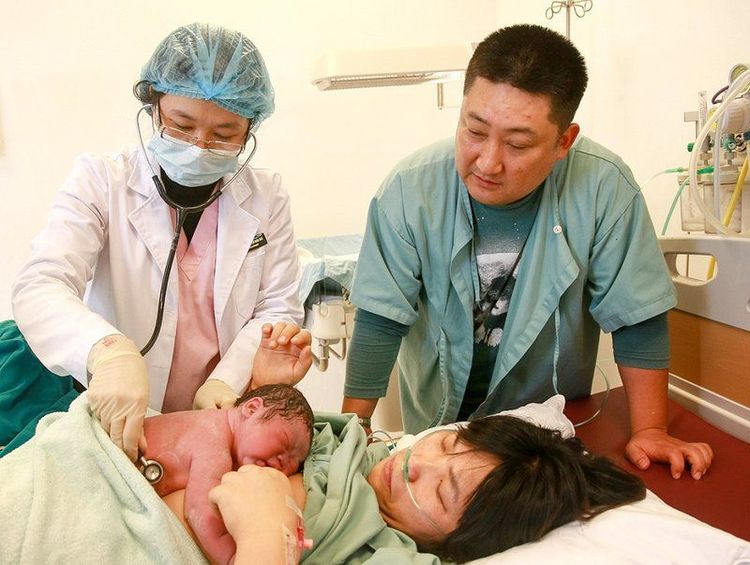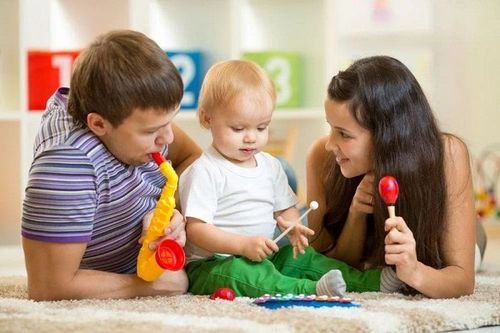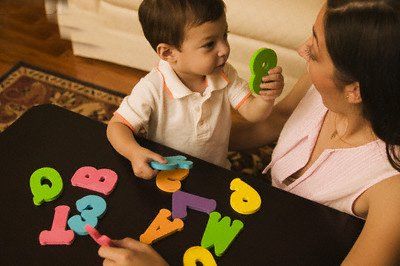This is an automatically translated article.
The article was consulted with Master, Doctor Nguyen Thi An - Pediatrician - Neonatologist - Department of Pediatrics - Neonatology - Vinmec Ha Long International General Hospital.As parents, we all want happy and healthy kids. Not only that, in this competitive age, parents often worry about whether their child is smart enough and wonder if there is anything they can do to help their child's intelligence grow. develop.
Growing research on early brain development shows that there are some basic things you can do right now to start raising a child who is curious about the world and ready to learn.
The American Academy of Pediatrics (AAP) recommends that parents talk with their pediatricians about how to create a supportive, stimulating environment for their child - starting at birth that promotes growth. healthy brain development and build the social and emotional skills needed for school readiness.
1. Create a bond and peace of mind for children
According to Tracy Crutchlow, editor of the book "Baby Brain Rules," if the brain feels unsafe, it won't be able to learn. That's why it's so important to establish a sense of security for your baby.Skin-to-skin contact is one of the ways to help build a sense of security, along with time to meet, massage the baby, talk to the baby, and dress the baby.
>>> Why should babies have skin-to-skin contact immediately after birth?
Creating a sense of security can be difficult for first-time parents as they often face sleep deprivation, social isolation, and challenging and trying new tasks. challenge. But keeping a strong relationship with your partner is one of the best ways to make your baby feel secure.
Crutchlow also advises parents to write down chores, come to an agreement with their spouses on how to divide the work, and support each other during "emotional moments". “If a parent misbehaves in front of their child, don't worry, just make sure to restore a sense of security to the child by making up in front of them,” she said. Newborns don't understand words, but they are influenced by their parents' emotions."

Tiếp xúc da kề da là một trong những phương pháp giúp xây dựng cảm giác an toàn với trẻ
2. Talk to your child often
Experts advise parents to talk to their babies a lot. “The brain is a pattern-seeking organ,” says Jill Stamm, an expert on early brain development and author of the book Bright From the Start. The more words he hears from his parents or the people around him, the easier it will be to learn the language.” Tracy Crutchlow, editor of "Children's Brain Rules," suggests parents tell their kids about what happened during their day.Crutchlow says: “Thoughts keep popping into our heads all day long. And while we don't normally share every thought out loud, these steady streams of information can really help strengthen a baby's brain."
According to many studies that have been conducted, by the age of 3, children who are talked to more often have an IQ that is 1.5 times higher than children who do not talk. By elementary school, they also have much better reading, spelling and writing skills.
So how can a child's parents plant the seeds for such strong language development? There are three keys: word count, word variety and complexity, and how young parents use them. By narrating to children their day, parents will naturally use all kinds of words. And using descriptive words like "a red car" and "strong coffee" can be the perfect way to add to your child's vocabulary.
In addition to vocabulary, parental tone and pronunciation are also important. Intonation is a great way to help a child's brain learn language because each vowel sounds more distinct. Timbre helps babies separate sounds into categories and pitches that are easier for babies to imitate. Stamm warns that today parents tend to talk less if their child has not started babbling. But don't let your child's silence stop you. Take the initiative to talk to your baby even if he can't speak yet because that's one of the best ways to develop language for your baby.

Hãy chủ động trò chuyện với bé ngay cả khi bé chưa thể nói được
3. Communicate with children with facial expressions
Research shows that babies start recognizing their parents' facial expressions when they're 3 or 4 months old, and they don't stop there. At around 5 months of age, babies can understand the emotions on a stranger's face, and between 7 and 9 months of age, babies can also read the facial expressions of certain animals such as dogs and cats. monkey.Ross Flom, associate professor of psychology and neuroscience at Brigham Young University in Provo, Utah, says emotions are one of the first ways children communicate with us. And the ability to read facial expressions is the foundation of strong nonverbal communication skills that help kids form and foster teamwork, fight less, and have lasting relationships. tighter as they mature.
Tracy Crutchlow, editor of the book "Children's Brain Rules" says, although parents really can't have too much time, watch for signs of overstimulation. or not. “The brain, especially a baby’s brain, needs rest,” she said. Parents should try to pay attention to signs, such as a baby crying or looking away. Children should not be forced too much. Instead, give your baby a few minutes to process what she's just learned."
4. Limit your baby's "motion restriction" time
Jill Stamm, author of "Bright From the Start," says children spend too much time on something called "restriction of movement." And according to him, a "motion-restricted" period is the amount of time a child spends in a stroller, car seat, and anything else that restricts their movement.Many babies spend hours in car seats every day, even when they're not in a car. Obviously safety comes first. We're talking about limiting time spent in car seats and other bins outside of cars.
The reason is because babies need to respond comfortably to surrounding stimuli. To do that, they need to be able to move freely and look ahead, to the side, and behind them. They need to watch for cues from their eyes and ears as well as follow the warning signals they've learned. This is the first stage of development in a child's attention system, which is "very early in formation," says Stamm. It sets the stage for even greater concentration and concentration later on.

Trẻ có thể khai phá tiềm năng trí tuệ lớn hơn thông qua sự yêu thương của cha mẹ
5. Using fingers in the process of teaching children
Studies have shown that children learn language faster if their parents point to an object while saying the word. At first, babies will look at their parents intently as they point. As babies get a little older, they will be more interested in the objects their parents point to.BYU psychology professor Ross Flom says: At 9 months, most babies start to follow their parents' finger lines and pay attention to what their parents are pointing at. At about 9 or 10 months old, babies will start bringing objects to their parents to see. This shared interaction is called "joint attention". It means that children are developing the ability to relate to their parents about something (and someone) other than the two of them.
What can parents do to build this skill? Continue pointing at objects while naming them. The baby may not understand the words his parents are saying, but the way parents communicate with the baby will gradually become more complicated. For example, parents can take their kids to the zoo, where they can both notice an animal like a polar bear. "Point at it, talk about it, describe it, to promote children's social, cognitive and linguistic development," says Flom.
Smart kids aren't necessarily born with pre-existing genius minds. Children can discover greater intellectual potential through their parents' love, care and parenting. Creating a connection, regularly communicating with children by words, gestures, eyes, actions... are the secrets to helping parents raise smart children.
For children to be healthy and develop well, it is necessary to have a nutritious diet in terms of quantity and quality balance. If children are not provided with adequate and balanced nutrients, it will lead to diseases of excess or lack of nutrients, which adversely affect the comprehensive development of children in terms of physical, mental and motor skills.
Children who do not eat properly are at risk of micro-mineral deficiency causing anorexia, growth retardation, malabsorption,... If they notice the above signs, parents should supplement their children with products. The supplement contains lysine, essential micro-minerals and vitamins such as zinc, chromium, selenium, and B vitamins to help fully meet the nutritional needs of children. At the same time, these essential vitamins also support digestion, enhance nutrient absorption, help improve anorexia, and help children eat well.
Parents can learn more:
Signs of zinc deficiency in children
Micronutrient deficiency and failure to gain weight in children
Please regularly visit Vinmec.com website and update useful information to take care of your child. Take care of the baby and the whole family.
Please dial HOTLINE for more information or register for an appointment HERE. Download MyVinmec app to make appointments faster and to manage your bookings easily.
Article referenced source: Babycenter.com












